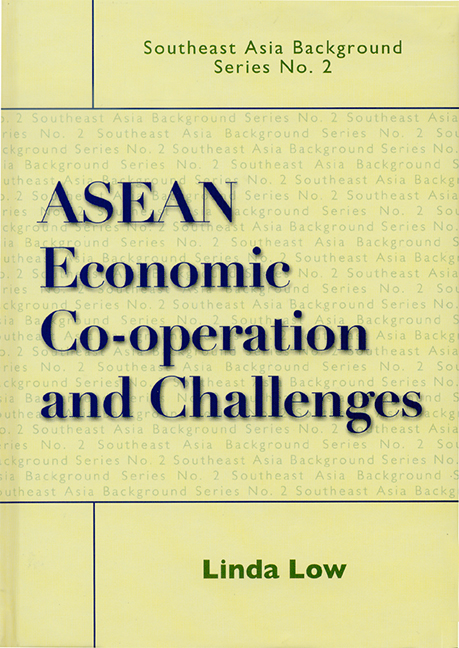5 - ASEAN External Co-operation
Published online by Cambridge University Press: 21 October 2015
Summary
INTRODUCTION
This chapter has two main components. One is the ASEAN Regional Forum which complements and supplements ASEAN co-operation efforts with non-ASEAN members. It serves as a political and security parallel of ASEAN post-ministerial meetings with ASEAN dialogue partners. The other component focuses on ASEAN external co-operation in consideration of the emerging new regionalism. This also covers the growing free trade arrangements between ASEAN and non-ASEAN trade partners. Monetary co-operation arrangements like ASEAN Plus Three and its impact on ASEAN consider whether ASEAN is challenged or stands to be marginalized. Thus, the question in the concluding section is whether free trade arrangements constitute a building block or a stumbling block to the ASEAN Free Trade Area.
ASEAN REGIONAL FORUM
The end of the Cold War had altered the configuration of international relations in East Asia. The new environment presented historic opportunities for the relaxation of tensions in the region through multilateral consultations, confidence building, and eventually the prevention of conflict. In 1992, the ASEAN Heads of State and Government declared that ASEAN should intensify its external dialogues in political and security matters as a means of building co-operative ties with states in the Asia-Pacific region.
The ASEAN Regional Forum (ARF) was thus established in 1994. It aims to promote confidence-building, preventive diplomacy and conflict resolution in the region. The present participants include Australia, Brunei, Cambodia, Canada, China, European Union, India, Indonesia, Japan, Korea, Laos, Malaysia, Myanmar, Mongolia, New Zealand, Papua New Guinea, Philippines, the Russian Federation, Singapore, Thailand, the United States and Vietnam. ASEAN has taken the lead in the ASEAN Regional Forum. Paradoxically, ASEAN itself seems to have gone a full cycle, back to security and political matters.
The ARF is a post-Cold War arrangement to mirror or act as a parallel to ASEAN post-ministerial meetings. The Forum involves the same set of dialogue partners and is meant to engage in constructive mechanisms to keep peace and stability in the region.
- Type
- Chapter
- Information
- ASEAN Economic Co-operation and Challenges , pp. 61 - 74Publisher: ISEAS–Yusof Ishak InstitutePrint publication year: 2004

